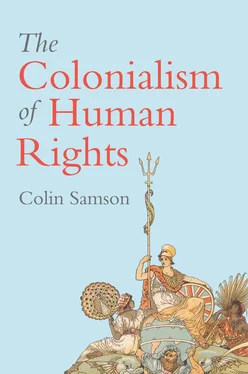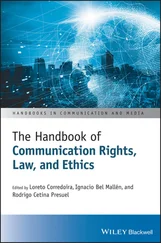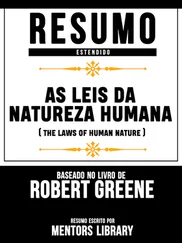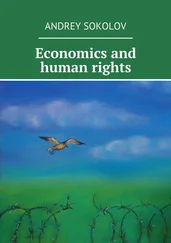Chapter 3 is the first of these more focused chapters. Entitled ‘Slavery and Its Afterlives’, it examines the human rights implications of enslaving Africans, particularly in the USA, a nation that has been referred to as the ‘Applied Enlightenment’. While six European countries all had major slave plantations in their colonies in the Americas, I spotlight the USA, in part, because its enslavement of Africans, and human rights enunciated by the Declaration of Independence and the Constitution, are simultaneous and related. In this chapter, I will articulate how this contradiction, incarnated especially in the life and thought of Thomas Jefferson, was destined to be played out through later policies that created differential rights for African-Americans. This was recognized early by numerous black scholars, orators and creative artists who, from Frederick Douglass onwards, realized that the country designed for them was anything but enlightened. Federally enforced segregation, discrimination and racialized concepts of rights after slavery set the precedent for ongoing police violence against black people and suppression of basic civil and human rights.
Chapter 4, ‘The Less Than Human’, considers how liberal Republican principles incarnated in the French Revolution co-existed with the colonization of Algeria and its aftermath. From 1830 to 1962, France’s North African colony was governed by decrees and policies that inferiorized Muslims, renamed their lands, and humiliated them through aggressive assimilation campaigns, including the ritual unveiling of Muslim women. The means to pacify Algerians, especially when they took up organized resistance, was often through violence and torture, and part of this will be analysed through the writings of Frantz Fanon. I argue that these contradictions continue and can be seen in the perpetuation of racial ideas that stigmatize entire populations, such as those expressed by Presidents Sarközy and Macron and the persistent discrimination against Algerians in France today. The violent and autocratic aspects of French rule have also continued in Algeria, evident in the Arabization movement, suppression of minorities and persecution of migrants. Some of these tensions will be explored through historical analysis, as well as works such as Gillo Pontecorvo’s film The Battle of Algiers , and Kamel Daoud’s novel The Meursault Investigation .
Chapter 5, ‘The Impossibility of Indigenous Human Rights’, deals with the contradictions between the desire of indigenous peoples to retain their rights as autonomous peoples on their own lands and the positioning of the colonizing state as maintaining its sovereignty through mere assertion. In this chapter, I will consider the American treaty system and the Constitutional and legal position of Native Americans, indicating that the formulation, implementation and enforcement of laws operate through the construct of Native peoples as subordinate populations. I then move to the recent conflict at Standing Rock Indian Reservation over the positioning of the Dakota Access Pipeline (DAPL) adjacent to the reservation and traversing sacred sites, burial sites and lands guaranteed by treaty. The pipeline, approved through President Trump’s 2017 Executive Order, effectively underscores a state of exception, enabling the state to build on prior violations of its own policies and laws and initiate new violations of indigenous rights.
Chapter 6, ‘Decolonizing Human Rights’, concludes by looking at where the hypocrisies of Western liberalism have led. It examines the disorienting colonial situations in which non-universal rights emerge, the ‘titanic inequalities’ which form their current context, and active disavowal of human rights in Western democracies. It ends by discussing ways through the morass of contradictions in which human rights stand: reparations for wrongdoing in colonialism and slavery, and indigenizing the law to resolve disputes over land, culture and sovereignty between indigenous peoples and states. These measures would help bring the present into conversation with the past, connecting the wrongdoings of colonialism and slavery with the differential human rights accorded Afro-descended, formerly colonized and indigenous peoples. I suggest that making these connections could help decolonize human rights by addressing the original and ongoing racial exceptions to human rights.
1 1 Rankine (2019).
2 2 Bennoune (2018).
3 3 Koskenniemi (2011: 114).
4 4 Reuters in Manama (2018).
5 5 Human Rights Watch (2018).
6 6 Landler (2018).
7 7 United Kingdom Government (2018).
8 8 United Kingdom Government (2019).
9 9 Bowcott and Borger (2019).
10 10 Vine (2011: 35–6); Weissbrodt and Bergquist (2006).
11 11 See, for example, Douzinas (2007: 9–26).
12 12 Hunt (1996: 30).
13 13 Sikkink (2017: 55–93); Barreto (2013: 17).
14 14 Orwell (1988 [1934]), (1957).
15 15 Mouffe (2013: 15).
16 16 A taste of this is contained in observations I make about a ‘land claims’ meeting between the leadership of Innu Nation and their Canadian advisers. See Samson (2003: 57–86).
17 17 Morris (2013: 159).
18 18 Durkheim (1973 [1890]).
19 19 Bentham (2011 [1975]).
20 20 Edelstein (2019: 194–6).
21 21 Erakat (2019: 31–2).
22 22 Wootliff (2018).
23 23 Shelley (2004: 102–6).
1 Non-universal Human Rights and Rightlessness
… the rights of man [are] narrow and fragmentary, incomplete and biased and, all things considered, sordidly racist. 1
Aimé Césaire
While white privilege is often about substantial social, political and economic advantages that white people in various societies are said to benefit from, and to which their identities are connected, it is made possible by multiple articulations of the basic inferiority of others. This may have to do with their ancestry, as in the case of my great-uncle’s remark at the expense of the black airman, or their basic unsuitability to make independent decisions over their own lands and affairs, as with the claim that African countries were ‘better-off’ under British rule. White privilege fits a view of the world as socially and culturally graded, where differences translate into exceptions to general principles, and where equal consideration or treatment of different types of person is always discretionary.
This discretion, coupled with selective outrage towards violation, is why Aimé Césaire bluntly described human rights as racist. In his Discourse on Colonialism , Césaire observed that Europe’s wars which prompted the UDHR were only seen as a disgrace because the corpses were primarily white. No such extensions of soul searching or appeals to international regulation and human rights were made when the bodies were not white. Moreover, the mid-twentieth-century deliberations on the founding of the United Nations were not characterized by any sorrow over colonialism and slavery, but by an attempt to prolong the self-appointed civilizing mission of the British Empire. This was especially apparent in the views of the South African apartheid leader Jan Smuts, who took a prominent role in founding the UN, and believed that rights should match the evolutionary stage of different races. 2Smuts drafted the Preamble to the UN Charter.
But how do rejections of the equality of human worth and dignity relate to the guarantees of equal human rights within liberal democracies? What happens when a hierarchically ordered expansionist culture, filtered through its extensions of colonialism and slavery, considers human rights? How are the precedents of slavery and colonialism relevant to a consideration of contemporary human rights? What happens when human rights are mapped onto national societies and a global order that contain massive inequalities and imbalances of power?
Читать дальше












